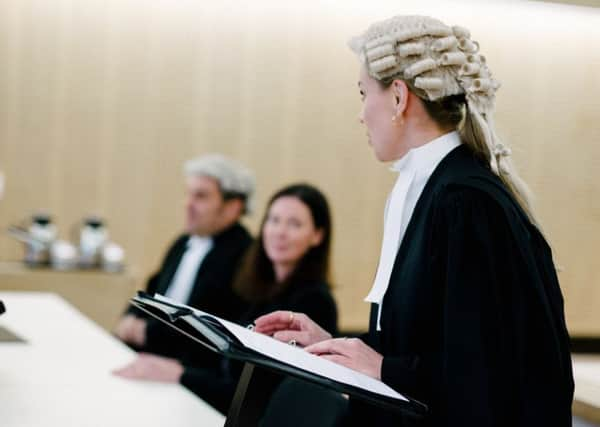Advocating lifelong learning - bar none


That is why the Faculty is leading the way in the legal profession by introducing a Quality Assurance Programme. The Faculty of Advocates has always required a significant commitment from its members, particularly in regard to training. We make no apology for that. The public has high expectations of advocates and we intend to match them or exceed them wherever possible.
The period of devilling has always required aspiring advocates to work full time at learning the art of good advocacy. In turn for their efforts and commitment the Faculty provides devils with a training course that is well recognised as world class.
Advertisement
Hide AdAdvertisement
Hide AdThereafter, all advocates are required to spend at least 10 hours per annum on continuing professional development and a percentage of those hours must be in the improvement of their core advocacy skills.
Since 1 November, advocates are required to undergo a Quality Assurance assessment on a regular basis. Assessors have been appointed and have undertaken a rigorous training regime to allow them to properly assess advocates, and an external assessor from the Irish bar, Mark Mulholland QC, has been appointed to oversee the work being done. These assessors will listen to a legal submission in criminal or civil advocacy and this will be filmed and recorded. The presentation will be considered against a number of objective criteria so that the assessor can determine whether the advocate meets the standard of effective advocacy.
These criteria include an assessment of the overall presentation; the legal analysis of the case; the structure of the submission; the use of language; whether the advocate engages the judge; and whether there has been an appropriate use of authorities and case reports.
Any advocate not meeting those standards will require to undergo further training and assessment, and completing that successfully will be necessary to continue in practice. Not surprisingly everyone in Faculty is treating this very seriously.
Like all major changes in any organisation there has been some concern from members. A very senior QC, upon receiving his letter advising him to attend for assessment, immediately came to discuss the matter with me as the Dean of Faculty. To say he was not over enthusiastic is to put it mildly.
I took some time to carefully explain the benefits of the new scheme and the reasons behind the change.
The senior member left satisfied with the explanation and I returned to my box only to find my own letter waiting. As a result this week, I as Dean of Faculty will be the first member to undergo the assessment, with the Vice -Dean, Angela Grahame, QC, following immediately.
I prefer to lead from the top, as the saying goes. I would not expect members of Faculty to undergo an assessment such as this, without doing it myself.
Advertisement
Hide AdAdvertisement
Hide AdAmazingly, it does not stop our members from volunteering for additional training events. Later this month members of Faculty are volunteering to take part in a specialist training course relating to representing parties at regulatory bodies including the Scottish Social Services Council (SSSC), Nursing & Midwifery Council (NMC) and the General Teaching Council for Scotland (GTC Scotland).
Equality of arms is an important aspect of access to justice and advocates want to ensure that the advocacy skills they deliver to courts and to regulatory bodies are the best they can provide.
Advocates are the only lawyers in Scotland who are required to meet these exacting standards in order to continue in practice. We want the public and indeed the whole legal profession to know that this programme is in place and that excellent and continuing advocacy skills are of fundamental importance to the Faculty. This should give reassurance to the public that when they instruct an advocate they will receive top notch representation and will be getting a lawyer with excellent experience and training.
Gordon Jackson, QC, is Dean of the Faculty of Advocates